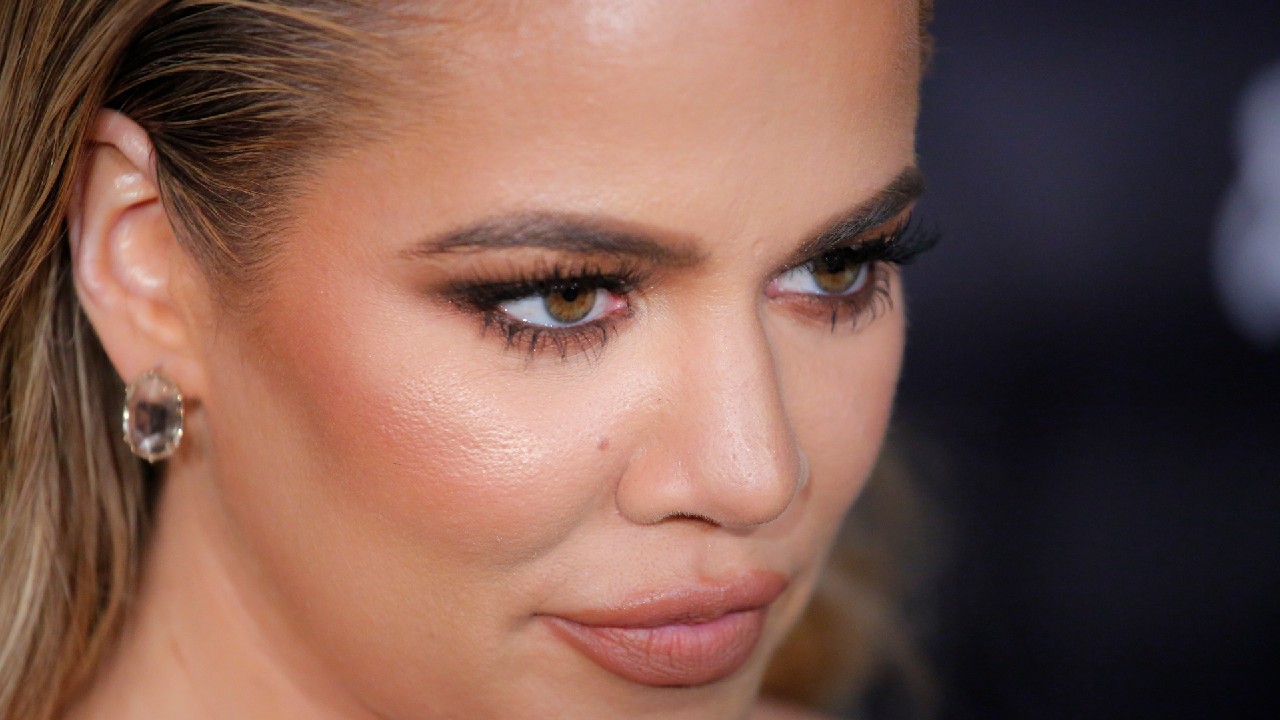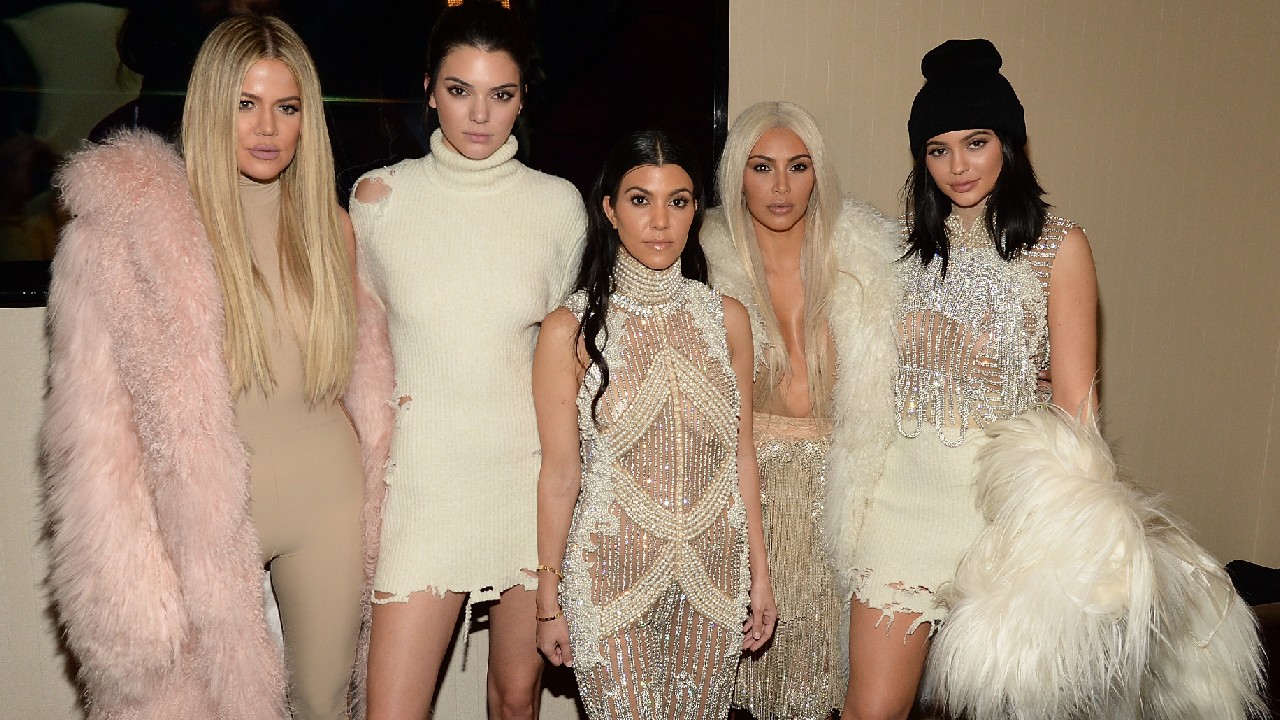

Earlier this week, Khloé Kardashian took to her Instagram account to clear some confusion around an unedited photo of the 36-year-old allegedly snapped and posted to social media without her permission. She said she’s faced “pressure, constant ridicule and judgment” her whole life, which she said was behind her decision to have the bikini photo, posted by mistake, removed.
“Hey guys, this is me and my body unretouched and unfiltered,” the reality star began her post, which included a video of her just in underwear (there is speculation this video was edited, too). “The photo that was posted this week is beautiful. But as someone who has struggled with body image her whole life, when someone takes a photo of you that isn’t flattering in bad lighting or doesn’t capture your body the way it is after working so hard to get it to this point — and then shares it to the world — you should have every right to ask for it not to be shared — no matter who you are.” This would be a totally fair and valid point if the Kardashian/Jenner family hadn’t put the pressure on themselves with their own editing and modifying antics. Sure, this can be applied to photos but the same can be said of their physical appearances, as well. This family has contributed to, if not created, the beauty standard over the last two decades through Photoshop, surgeries and fetishizing Blackness.
When Keeping Up With The Kardashians premiered in 2007, it was possible to casually engage with the family. Now, 13 years later, the Kardashian/Jenner family are selling more than a lifestyle—they are selling what one might call the best part of themselves (read: most marketable). Kim sells SKIMS, body slimming shapewear. She also sells makeup, including a body foundation she uses to give herself an unnaturally bronze glow while Kylie shilled lip kits that made her almost, maybe a billionaire while denying she used lip fillers (and then finally admitting it, saying she dissolved them). Kendall made her runway debut, while Khloé took viewers on her weight loss/body acceptance journey.
As the family modified their appearances, so did the world, it seems. To quote Kim’s soon-to-be ex-husband, Kanye West, well, no one family should have all that power. Back in 2015, after Kylie admitted her fuller pout was courtesy of lip injections and not her branded lip liner, more people than ever underwent the lip augmentation procedure. And the following year, the number increased. In 2019, the American Society of Plastic Surgeons reported that 24,099 Brazilian Butt Lifts — an invasive procedure that begins with liposuction to remove unwanted fat from one area of the body, like stomach, flanks, and/or thighs. The fat is processed and then reinjected into the buttocks to improve contour) were performed in the US last year — up 19% from 2017 (the procedure’s rise in popularity has been linked to Kim).

Women’s Wear Daily reported Dr. Simon Ourian, (famous for working with the family) called the Kardashian/Jenners both individually and as a unit the “biggest influencing power force behind any concept that happens on social media” today. “Imagine if all of them post something one evening or in the morning — pretty much the largest proportion of people who have access to a smartphone will see what they’re saying,” Ourian told WWD in 2017. “No media, I don’t care [what anyone says], no CNN, none of these have that kind of power,” Ourian said. “I can’t think of any other celebrity who has more impact on social media or on culture as a whole than they do. That’s not debatable. They have more than half-a-billion social media followers between all [of them].…That’s more than twice the size of the U.S.”
Now imagine had Khloé, in particular, used her power for good. While she has a good thing going with Good American (Nordstrom credits the brand with helping the company rethink how they merchandise plus and straight clothing), her denim brand co-created with Emma Grede in 2016, she also has a show called Revenge Body. The show’s premise is for Kardashian to help fans who have gained weight get revenge on people who discouraged them during their weight gain. The team works with fitness trainers and get celebrity treatment along with confrontation of their enemy toward the end of their weight loss journey. Wait, isn’t Good American representing body acceptance? It’s also worth noting that Khloé said she faced constant ridicule but thought nothing of disparaging Jordyn Woods, who she referred to as a “fat ass” on national television after Woods allegedly kissed Tristan Thompson, Khloé’s daughter’s father.
And there is also the issue of Blackfishing. Whether it’s Kim’s butt, Kylie’s lips, or Khloé not being a size 00, with the Kardashian/Jenners it’s hard, as Arabelle Sicardi wrote for Allure: “to untangle just how much of the Kardashians’ influence has to do with their personal success, and how much of it has to do with having a high-profile person to platform the fetishization of Blackness in America.” She continues: “Kim’s distance from whiteness, however relative, made her a person of interest and revulsion — that is, a desirable person,” said Lauren Michele Jackson, author of White Negroes. “Kim’s particular fame derives from a cherished place in the American racial imagination that, combined with wealth, prevents contact with the deathly effects of brownness in this country, while reaping the exoticism of not-quite-whiteness.” The Kardashian/Jenners have been able to capitalize on Black bodies, and their fans, knowingly or not, want to capitalize off it.
Like Sally Kohn wrote for the Washington Post, even the title of the show that drew them all to fame, is an “implication…that something is wrong with the rest of us that we can’t keep up. But it would certainly help if the Kardashians weren’t so recklessly feeding the biases and stereotypes we know make it harder for women and people of color, and especially women of color, to succeed.”













